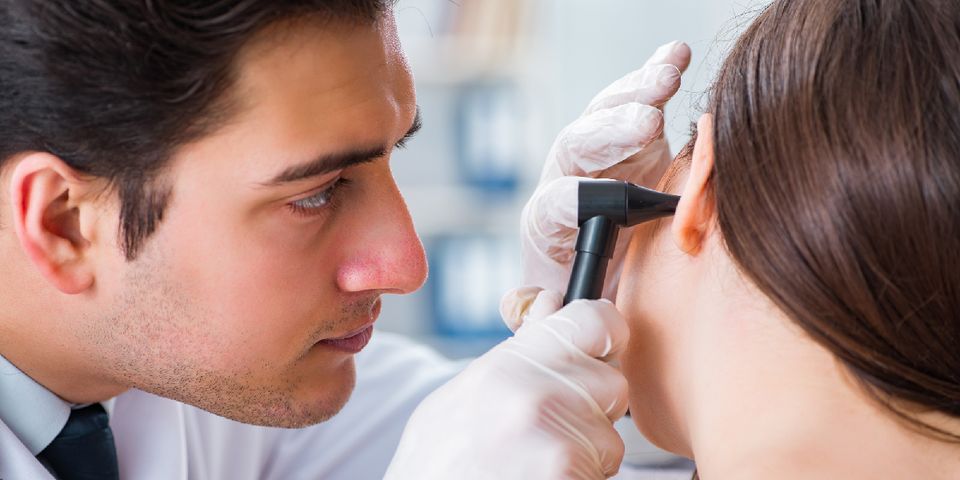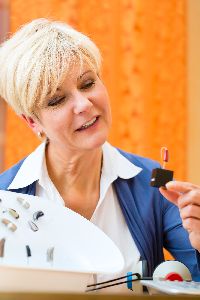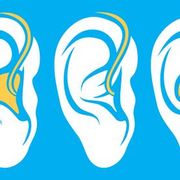
Whether you're experiencing hearing impairment because of congenital irregularities, physical trauma, or age, hearing aids can help you communicate with others. If you've spoken to an audiologist, they've probably suggested quite a few different types. If you're not sure which is best for you, take a look at the differences among them.
A Guide to Hearing Aids
1. Behind-the-Ear

A behind-the-ear device, or BTE, can accommodate individuals of all ages with mild to severe hearing loss. This listening device sits behind the ear with a hinge and microphone that holds it in place. While any type of hearing aid can take some getting used to, some people find BTE models comfortable while others think they're too bulky. So, you'll have to try a pair on before deciding if this is the right model for you.
Although a BTE device is fairly visible on people with short hair, each electronic casing can be color matched and comes in a variety of sizes.
2. In-the-Ear
The most discrete hearing aid is the in-the-ear, or ITE. Similar to the BTE, it suits mild to severe hearing loss but only for adults. They are custom fit to sit inside the inner ear, so they're not recommended for children and adolescents who are still growing.
This hearing aid can also be color matched. Additionally, it can be connected to a sound system or telephone using a telecoil feature to make the audio clearer.
3. Middle-Ear Implant
For those with significant hearing loss or those who cannot wear a hearing aid, a middle- ear implant, also known as a cochlear implant, can be a great choice. This device is surgically placed on one of the small bones of the inner ear to move the bones and strengthen sound vibrations, rather than amplify the sound. This implant is said to reduce feedback.
However, it may not be as discrete. An external audio processor is held by an internal magnet toward the back of the head to convert sounds to electrical signals that the implant deciphers.
If you're experiencing symptoms of hearing loss, turn to Northwest Alabama Hearing Clinic in Hamilton, AL. Dr. Angie Kerr is a licensed audiologist who uses the most advanced technology to run thorough diagnostic tests, and she'll help you determine the right device for your needs. The professional staff is dedicated to ensuring every client receives personalized care in this warm, welcoming clinic. To learn more about the services available, visit the website. To schedule an appointment, call (205) 952-9944.
About the Business
Have a question? Ask the experts!
Send your question

